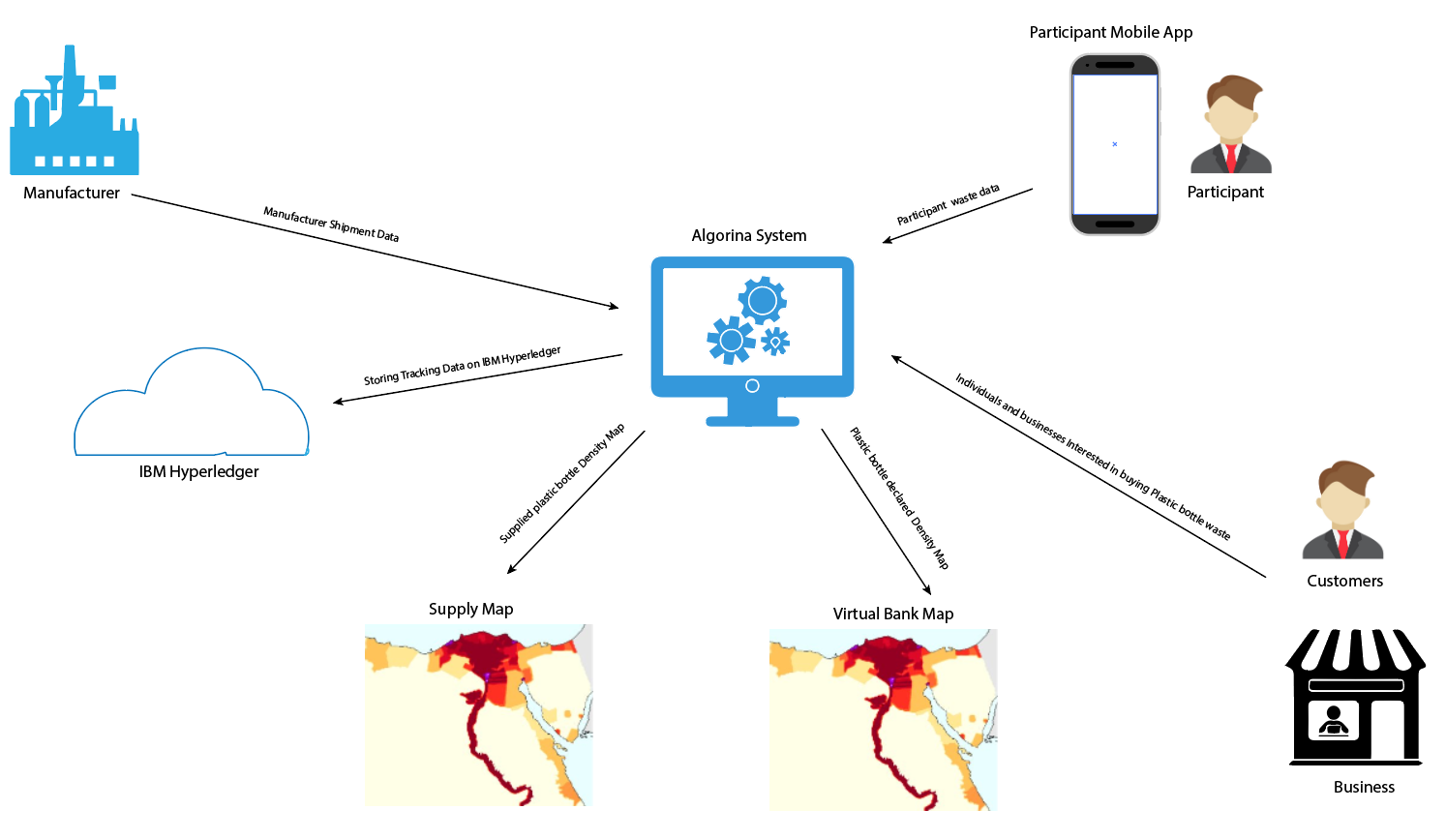Inbox

Move idea from "Submission and Collaboration" stage to:
Do you want to send this idea to AdaptiveWork?
Do you want to send this idea to Portfolios?
Which workspace template do you wish to use?
on
People's views about pollution and climate change vary. Spreading awareness and education are good policies, especially for long term goals, but building ecosystems around these issues, in which value is actually created and transformed, will get people to participate in solving the planet's problems regardless of their beliefs and opinions.
Tracking each piece of plastic throughout the globe is infeasible, even if nanotechnology advances allowed us to attach a GPS module in each bottle of water, the amount of data produced by these imaginary GPS trackers will be out of the computational capacity of the most ruthless supercomputers.
But estimation is always there. If we managed to build a probabilistic system that we can reliably use to track and locate plastic, this can help us tackle or at least negotiate with the problem of mismanaged plastic waste.
The supposed system:
For the sake of simplicity, we're going to stick to only one type of plastic waste, that is water bottles in all sizes. We can generalize the solution later when needed to accept more varieties of plastic waste, or even to cover other types of environment-harming waste.
Manufacturers:
- Manufacturers are the entities that produce water bottles. Luckily, there are few in Egypt (Nestle, Coca Cola, etc)
- Manufacturers will provide the amount of bottles they sell per area on a daily basis.
- This data will be stored in anonymous way, with transparency, security and immutability being our main concern. We are using Blockchain technology to guarantee these criteria.
- Using this data, we will create a density map, that will show how much plastic has been sold to this specific area from a specific manufacturer.
- The same is repeated for other areas and other manufacturers. The result map will show an estimation of how many plastic bottles have been sold with respect to areas. We will call it The Supply Map (TSM)
- TSM can be regarded as a probabilistic tracking system for plastic bottles. Although you don't know where each bottle is located exactly, you can know the density of plastic sold to a given area.
Users:
- A user is any water consuming entity (a person, a family, a restaurant, etc).
- Using a mobile app, the user can declare the ownership of a specific amount of empty plastic bottles. Once declared, an amount of points is instantly added to the user account. However, redeeming these points into cash or other value asset will require verification.
- A trustworthiness meter is attached to each user to reflect their credibility. Inability to deliver the declared plastic amount will damage their meter, and hence decreasing their revenue. This can be used to promote transparency.
- Using the data provided by users, we can create a real time map that shows how many bottles are actually purchasable. You can think of this map as a virtual large bank. We'll call it Virtual Banks Map (VBM)

The Revenue
- Currently, we have two density maps. TSM that reflects the amount of plastic bottles sold to an area, and VBM that reflects the amount of available bottles to be sold in this area. In a perfect community, these two maps should look the same.
- Third parties who are interested in buying empty plastic bottles, will simply use the system to see the available amounts and prices per area, and decide the best deal for them.
- To encourage people, we'll use supply-demand rules to control the price. Say there is a lot of available plastic waste at a crowded area (e.g. Ramses Square). We will encourage buyers to choose Ramses by slightly lowering the prices there.
- On the other hand, a neighborhood where there is little waste, the prices go higher, encouraging people to actually start selling.
Other Benefits:
- comparing VBM to TSM will show us how much a specific area is careful about environment, hence, allowing educational and awareness campaigns to target them.
Bakary-Dounanke
https://drive.google.com/drive/u/1/folders/1ThxC3jGsIAo0ynnBkHEy04cwZN_83XqW
http://www.algorena.com
https://drive.google.com/drive/folders/17LLUIjzSTlAeiwvbX3iHA6bmYCp-MF3P?usp=sharing
https://github.com/ciwara-bakx/CFFWebApp

Help to Improve This Idea.